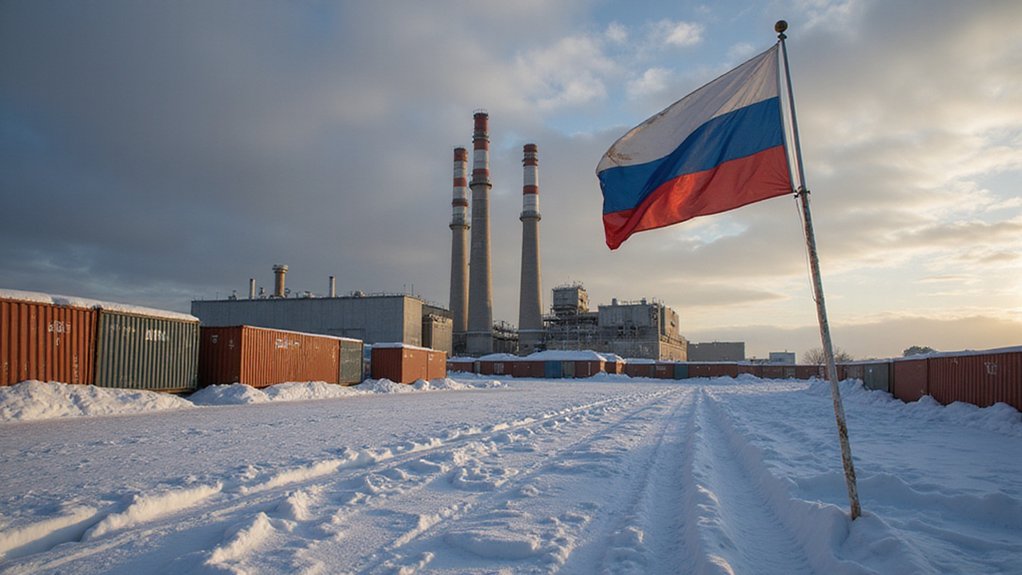Russia’s latest bureaucratic masterstroke—a national registry for cryptocurrency mining operations—officially launched on July 7, 2025, marking the Kremlin’s characteristically heavy-handed approach to an industry that thrives on decentralization and regulatory ambiguity.
Moscow’s iron grip tightens on crypto’s anarchic frontier with mandatory miner registration—bureaucracy meets blockchain in predictable fashion.
This centralized database, orchestrated by the Ministry of Energy in collaboration with the Federal Tax Service and Ministry of Digital Development, represents Moscow’s attempt to corral Bitcoin, Ethereum, and other crypto miners into a neat regulatory framework—because nothing says “peer-to-peer revolution” quite like mandatory government registration.
The registry emerges from cryptocurrency mining’s legalization in summer 2024, creating a peculiar paradox where an inherently libertarian technology now requires state approval. Companies and individual entrepreneurs must register their equipment and dutifully report earnings to tax authorities, transforming what was once a Wild West operation into something resembling a traditional extractive industry.
Individual miners enjoy a modest 6,000 kWh monthly exemption before crossing into regulatory territory—a threshold that barely accommodates serious mining operations.
Deputy Minister Petr Konyushenko emphasizes accurate energy consumption data for tax compliance, addressing a pressing concern that extends beyond revenue collection. Illegal mining operations have reportedly drained Russia’s power grid, contributing to regional shortages particularly in Siberia.
The recent discovery of a 30,000-square-meter unauthorized crypto farm in Krasnoyarsk Krai illustrates the scale of this subterranean economy, where entrepreneurial miners exploited subsidized electricity rates without contributing to state coffers. President Putin has voiced support for regional mining bans as energy deficit concerns continue to mount across multiple territories.
Enforcement mechanisms include internet traffic analysis and data sharing between ministries—technologies that would make any privacy advocate wince. Local authorities receive registry data to enhance oversight, while regional mining bans address escalating energy deficits.
Power companies, long frustrated by mysterious consumption spikes, finally possess tools to identify these digital gold rushes masquerading as residential usage.
The registry signals Russia’s strategic pivot toward formalizing its crypto mining sector, potentially boosting tax revenue while attracting institutional miners seeking regulatory certainty. Tax documentation for crypto operations will require detailed records of equipment costs, energy consumption, and transaction dates to ensure compliance with both short-term and long-term capital gains requirements.
However, standardization inevitably increases operational costs through compliance requirements and taxation—a bitter pill for miners accustomed to operating in regulatory gray zones.
Whether this bureaucratic embrace enhances or stifles Russia’s position in global cryptocurrency mining remains an open question, though history suggests the Kremlin rarely prioritizes industry convenience over state control.








